How Lenders Can Avoid Losing Their Collateral by Paying Off the Borrower’s Property Tax Obligations
Jimerson Firm
MAY 24, 2021
This may be troublesome for lenders because the property may then be sold for taxes, which will eliminate the lender’s mortgage lien. This may leave some lenders wondering how it can protect their mortgage interests, if the borrower is delinquent in paying its property taxes. How Do Property Taxes Result in Loss of Collateral?

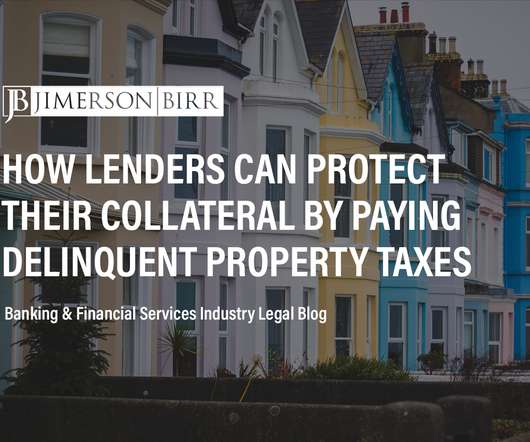
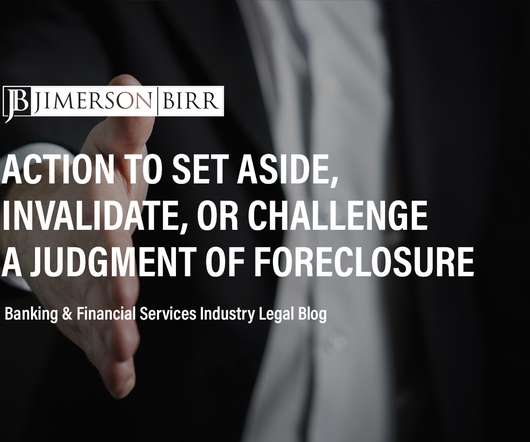
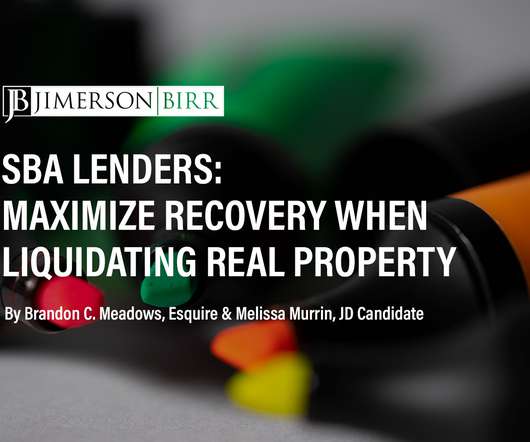
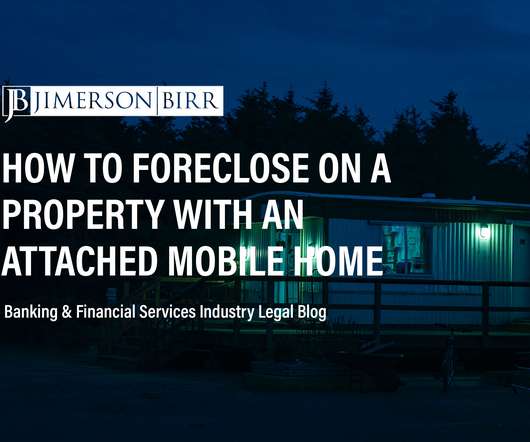
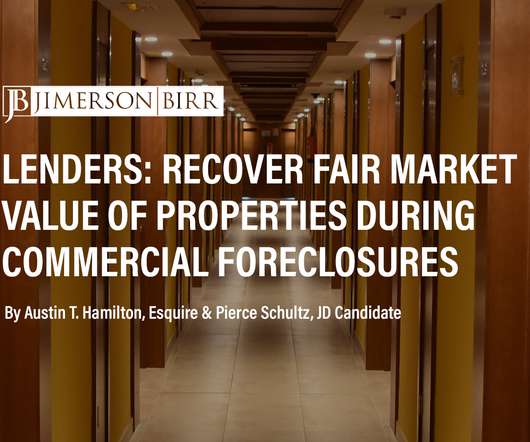
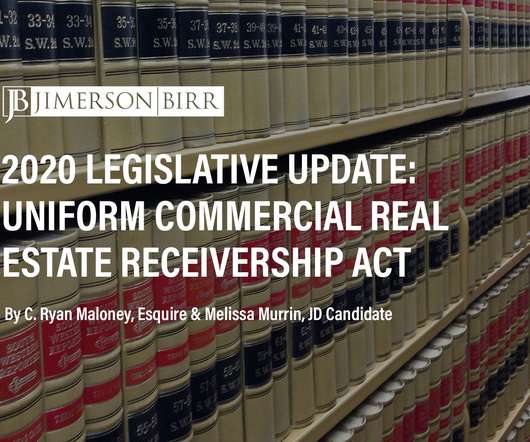








Let's personalize your content